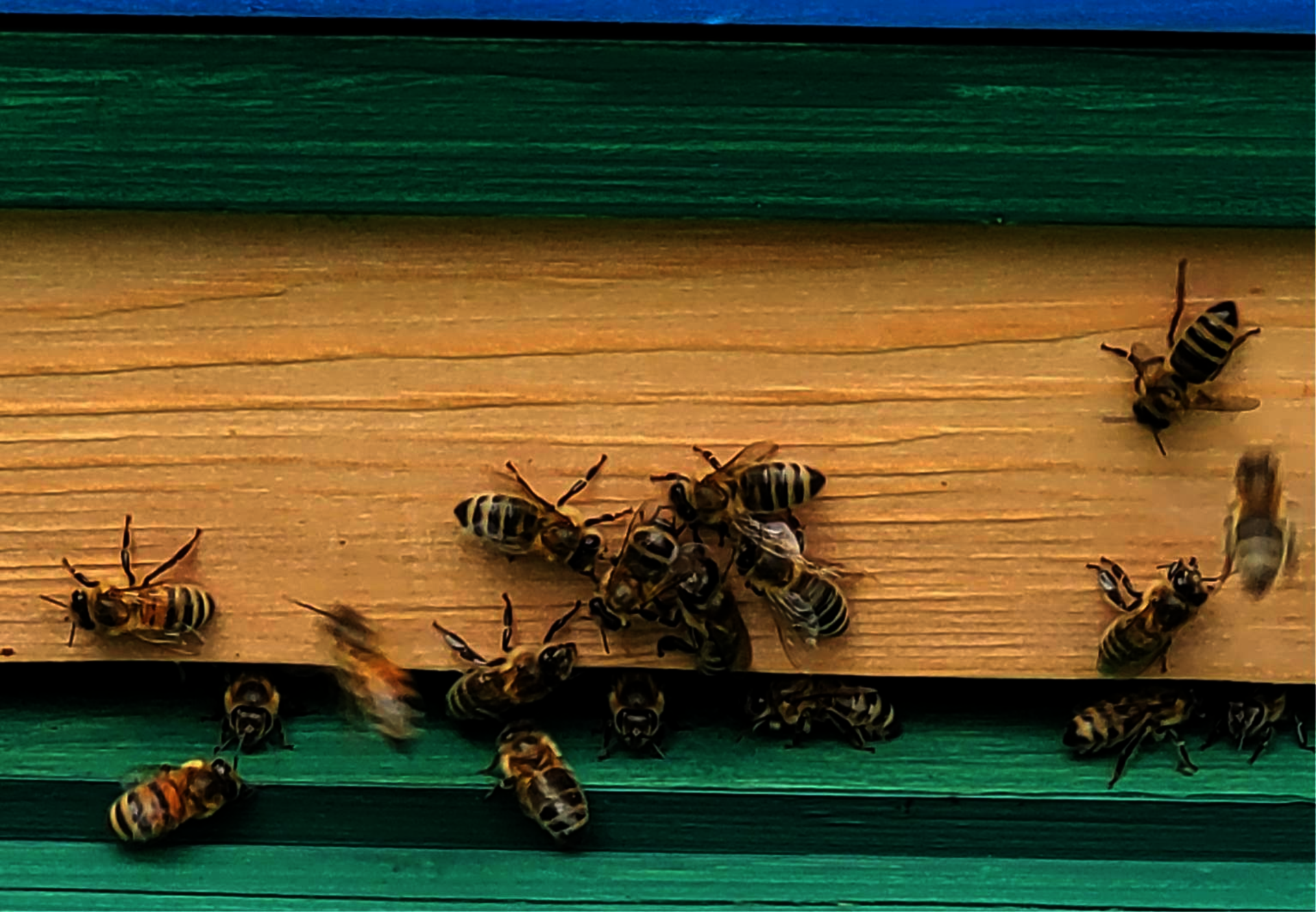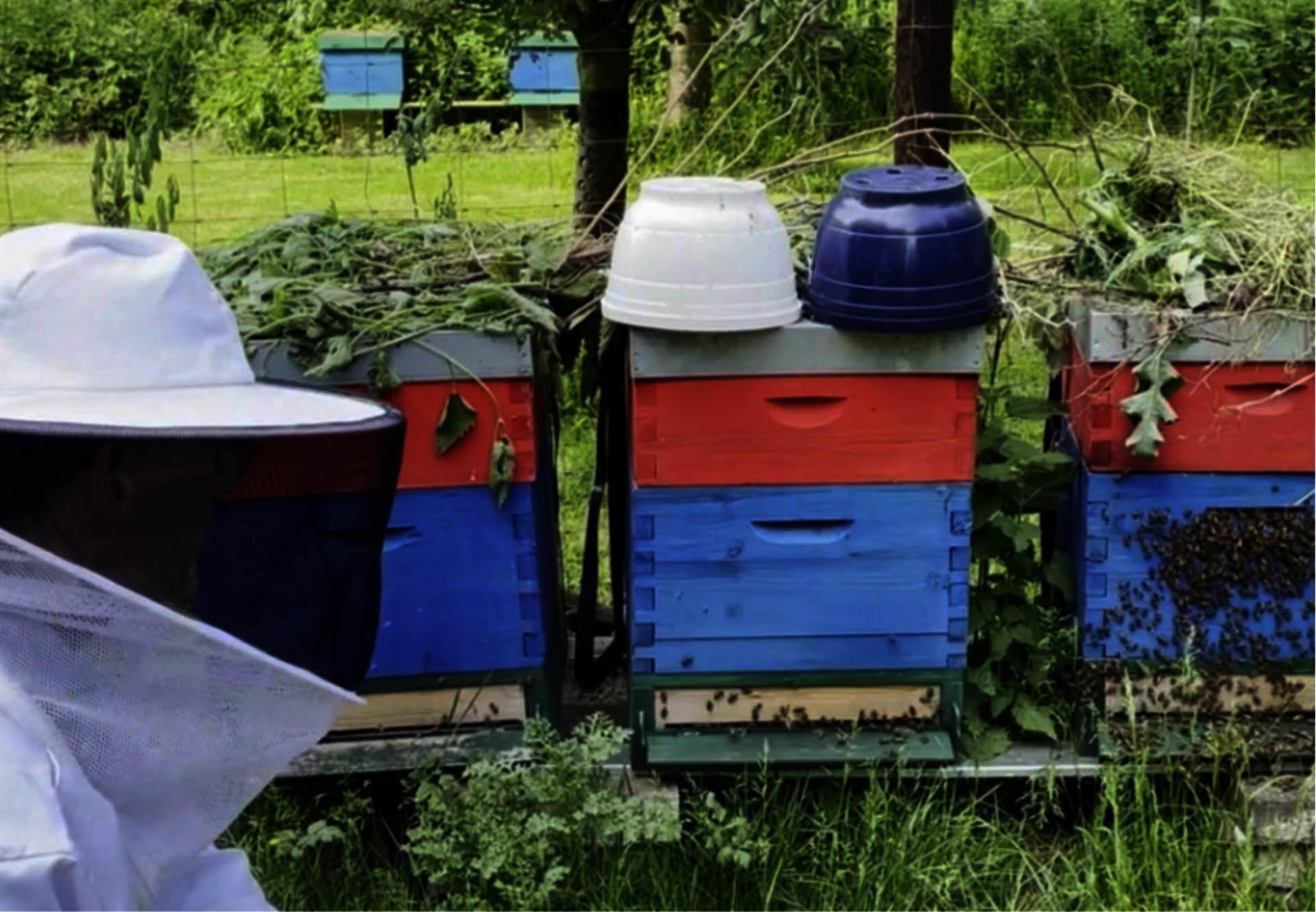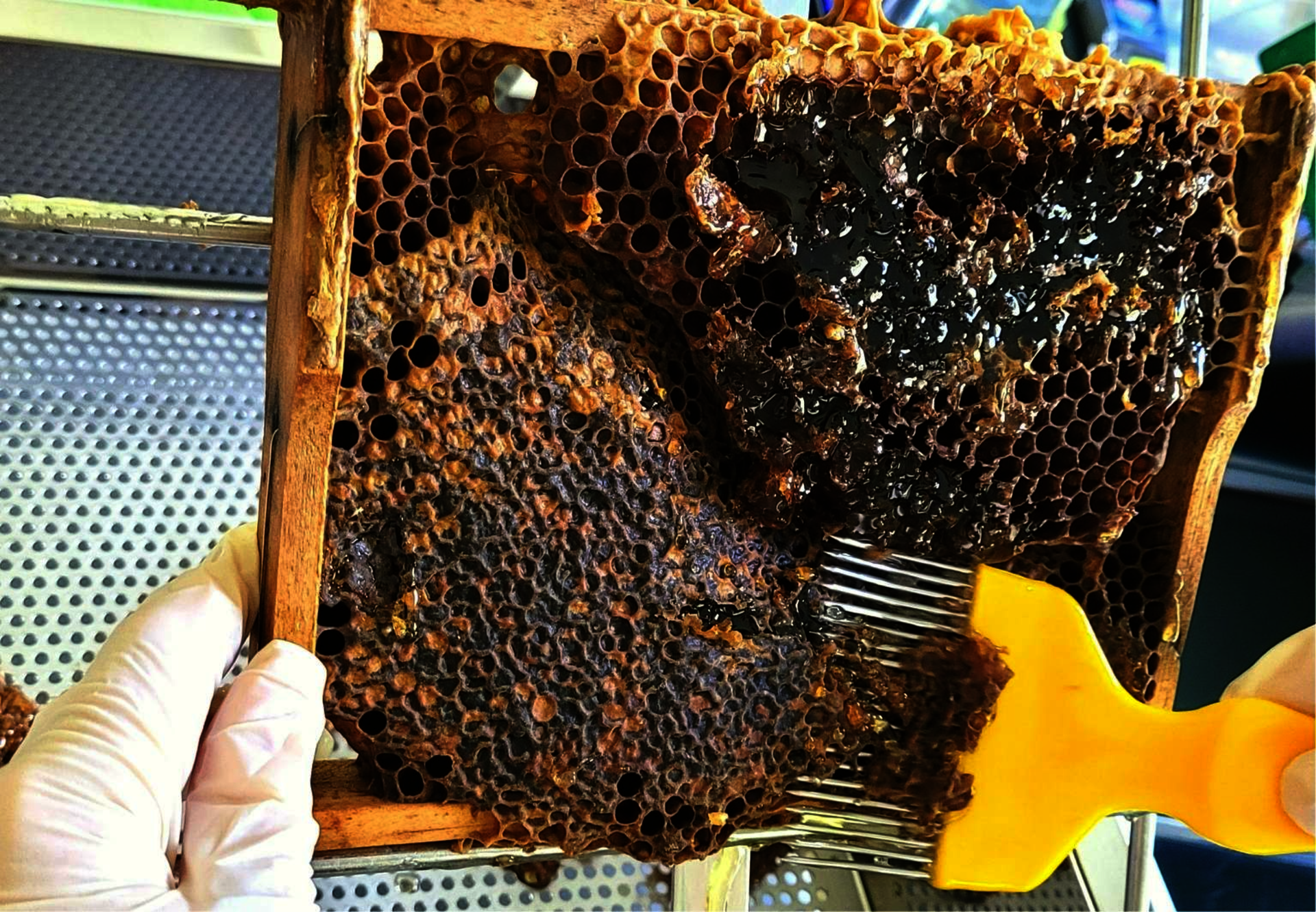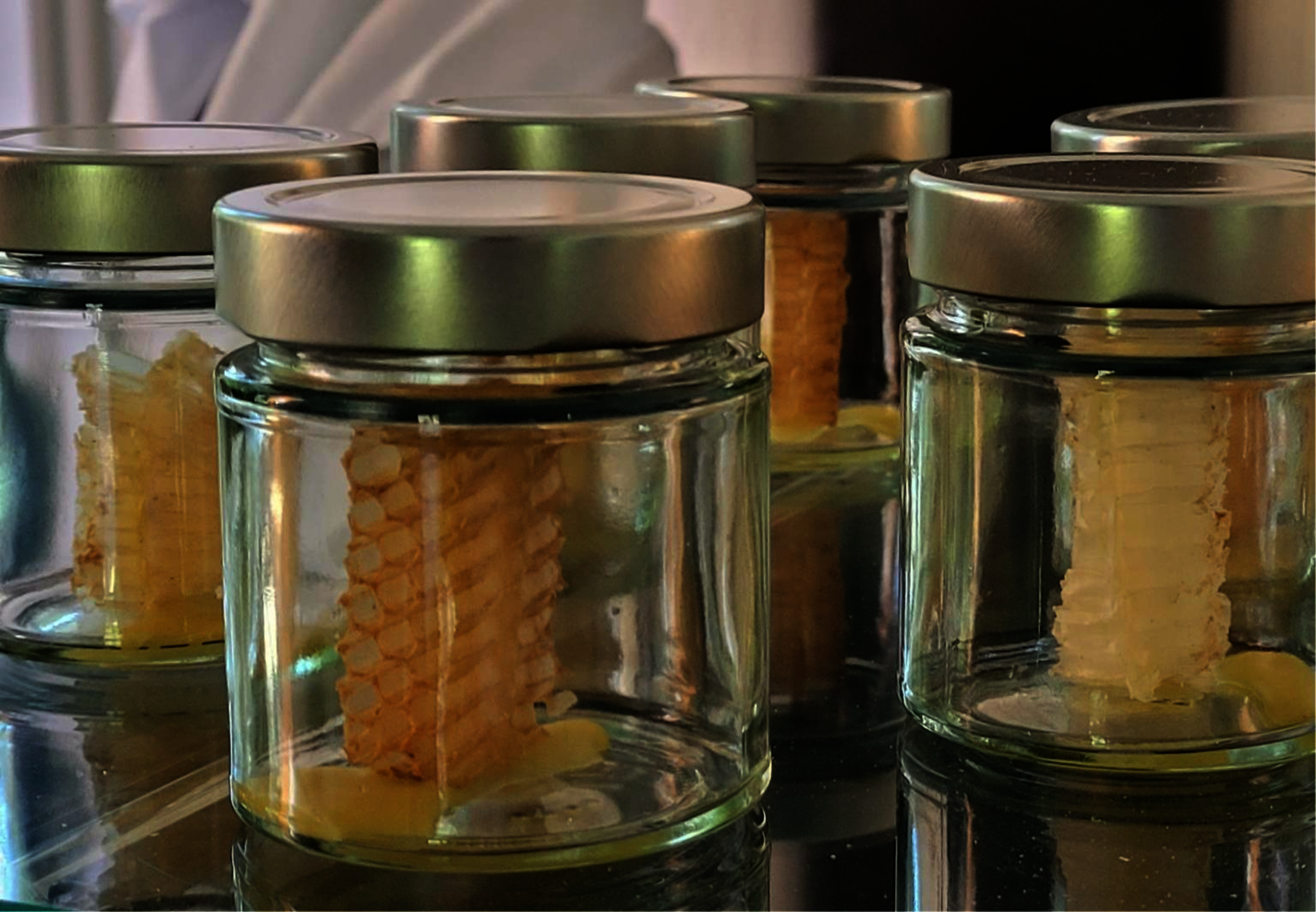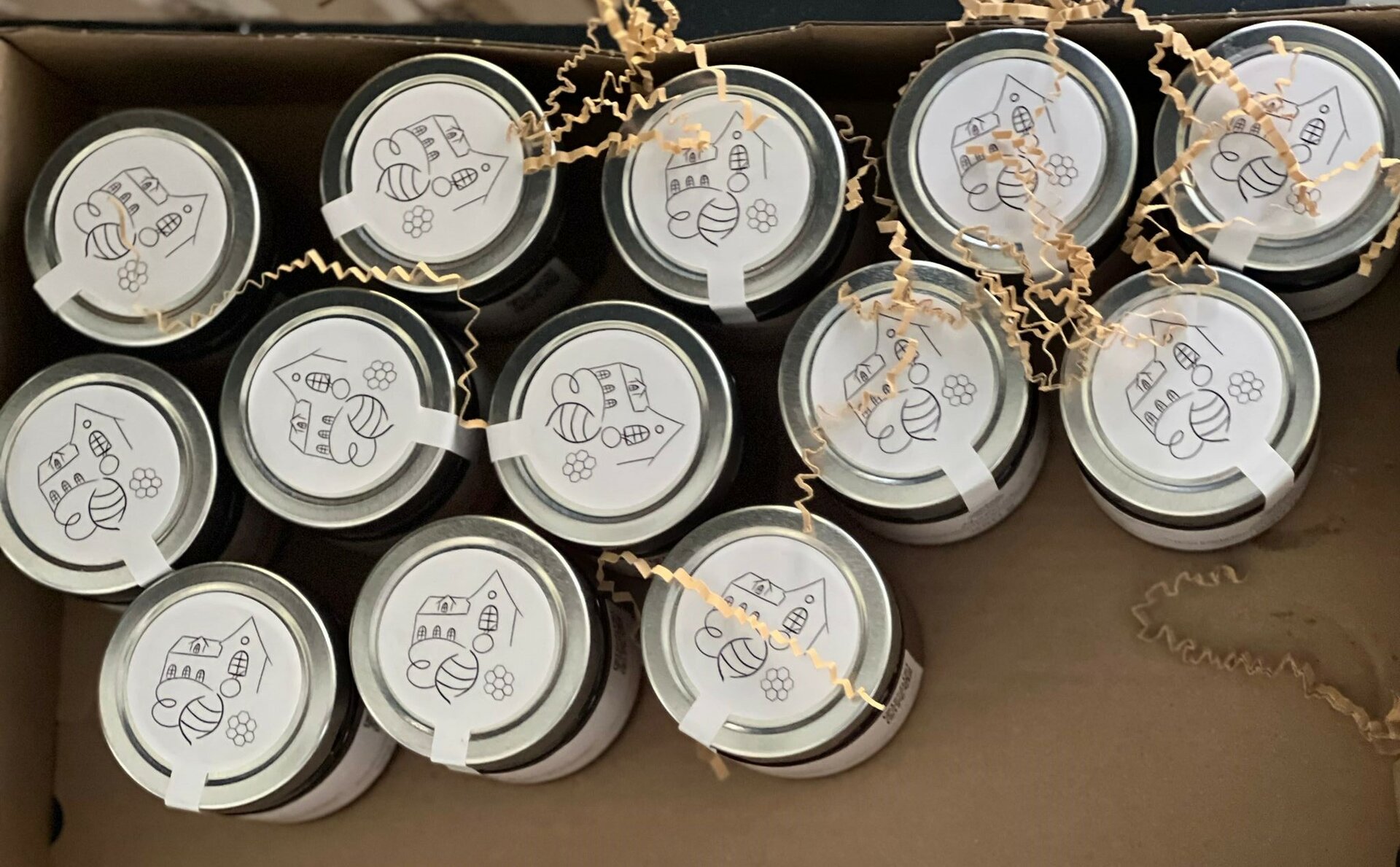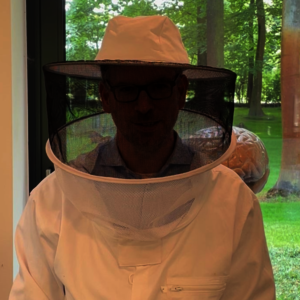We bekeep personally
Santiago Honey
Up to 100,000 bees live and work right next to our office in Willich.
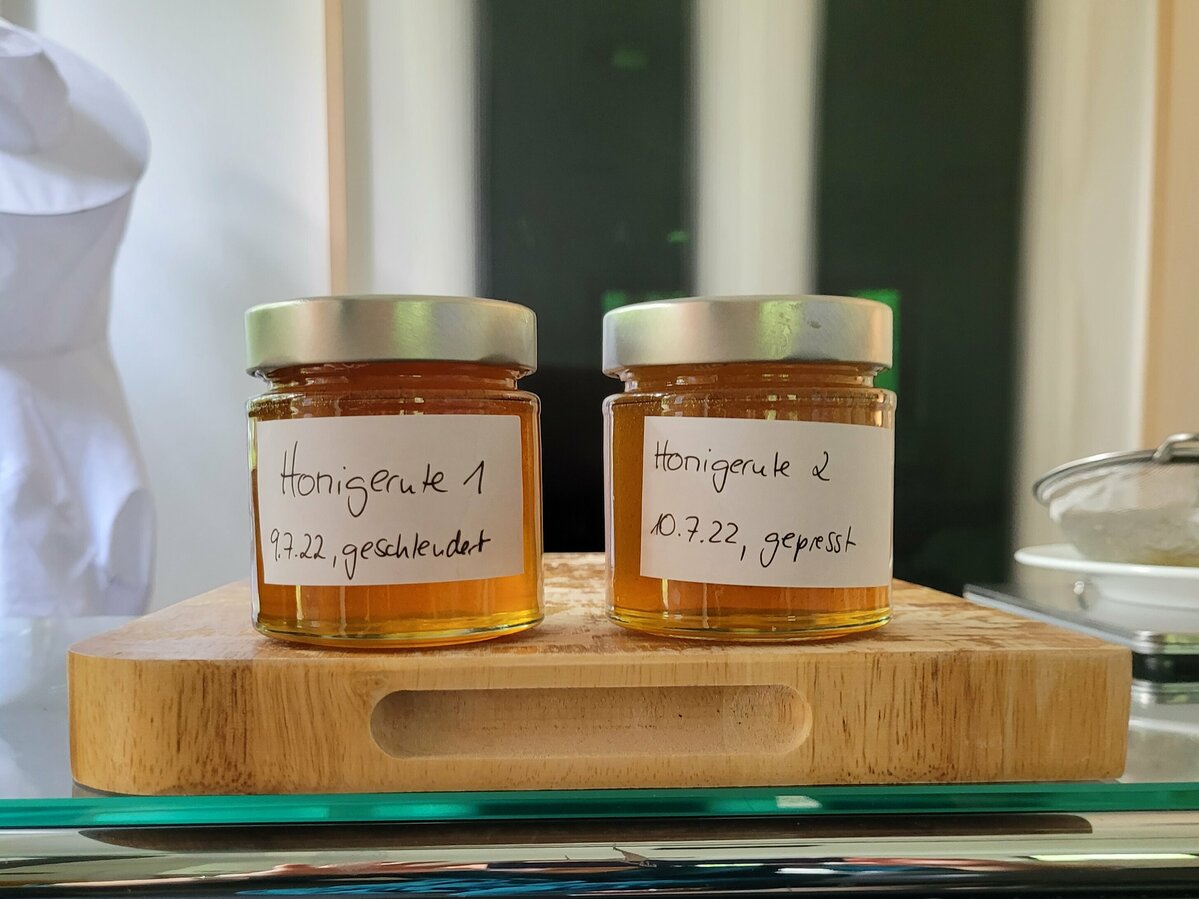
Our motivation
The Santiago headquarters is located in the middle of nature - surrounded by woods and meadows in the "Willicher Lehmplatte" landscape conservation area. Working here is both a privilege and an obligation. And it is the ideal place to share with one of the most important farm animals of our time: The bee. This nation-building animal that is so important to our food chain and ecological diversity, and that has such fascinating abilities. In many ways, it reminds us a lot of our work as strategy and organizational consultants. For example, a colony can only survive and grow if it implements clear roles and responsibilities and each bee implements them precisely. She loves efficient structures, forms symmetrical living worlds and communicates precisely to point the way and ward off opponents.
All this led us in 2021 to start beekeeping and eight colonies, giving a little support to the nature that surrounds us at work. Up to 100,000 bees have been part of our team since then. Right now the next challenge is waiting for us: we are converting our conventional farm and aiming for organic certification in 2024.
Santiago Honey - Our own manufactory since 2022
In the first year, we focused on strengthening and protecting the colonies. In 2022, we dared to harvest our own honey for the first time - but in a very limited way, so as to disturb the natural balance as little as possible. Although the colonies are only a few meters apart, they have created two completely different types of honey. And we are proud to present two cuvées that, although quite different, are deeply influenced by the environment: Salvaje and Sativa.
Salvaje (Spanish for wild, desolate) reflects wild nature. Two-thirds of the pollen in the honey comes from forget-me-nots; the nectar is supplemented by a significant amount of honeydew. So our bees were mainly around flowering wild plants and very deep in the forest.
The honey was hand-pressed and filled into the jar without further processing. Characteristic is therefore also the low exposure to oxygen and the corresponding clear liquid consistency.
First harvest date: July 9, 2022
Sativa (Latin for cultivated) stands for the cultivated plants that have been planted here in the area over the decades. Three-quarters of the pollen identified in the laboratory is from sweet chestnut, maple and rose.
To extract the honey, we spun it by hand, pressed in parts. Filtering was done through the coarse sieve, floating wax residues were skimmed off manually. The honey was matured for four weeks, then stirred and bottled.
First harvest date: July 10, 2022
In 2023 the harvest was somewhat smaller, but the quality of the honey prompted us to produce a new edition of "Sativa". We are delighted that a piece of the natural environment of our office in Willich has once again found its way into a glass and onto a table or two.
Harvest date: August 12, 2023
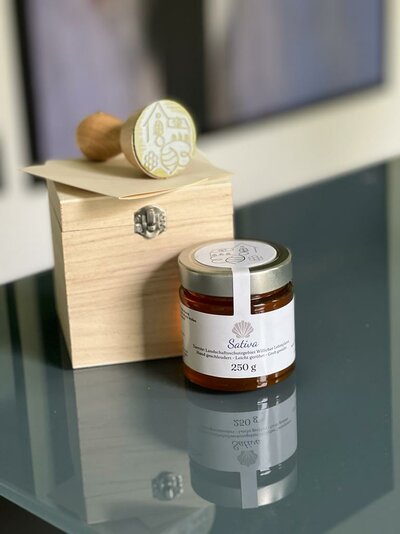
From the flower into the glass
What does it actually look like when management consultants become beekeepers? The truth: Behind every jar of honey are many instructive and exciting hours of work. Starting with your own training and joint bee care with an experienced beekeeping professional, through catching escaped colonies to honey harvesting and bottling.
The pictures shown here give a small insight into the fascinating world of bees in the garden of the Santiago headquarters.
